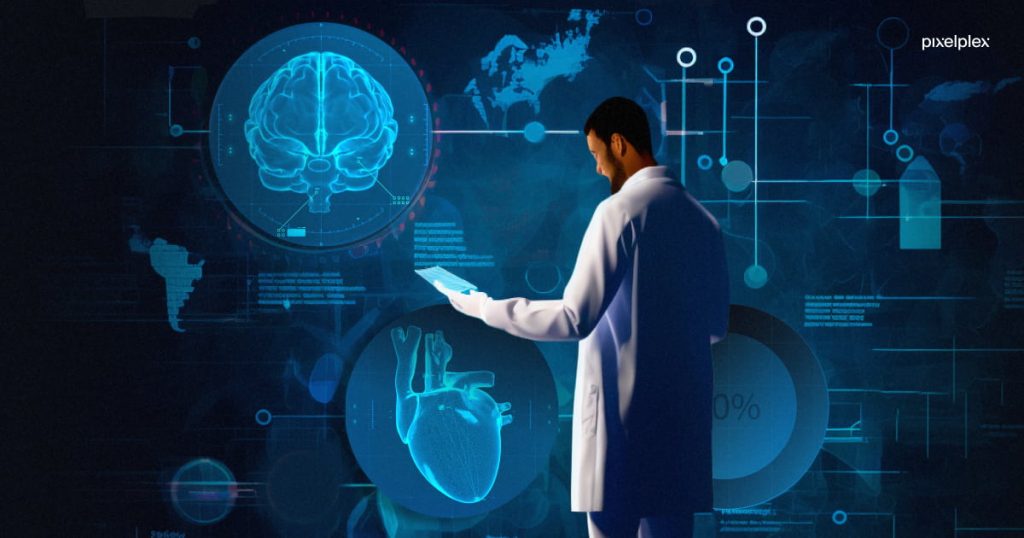
Big Data Analytics in Healthcare: Leveraging Data for Better Decision-Making
The growth of big data analytics in a rapidly evolving culture has ushered in a new age of potential and revolution in the healthcare sector. Nowadays, huge amounts of data have been collected by healthcare organizations due to the digitization of health records, diagnostic imaging, and wearables. This data can benefit this sector and the planet in general. The tough portion is getting the data to produce intelligent judgments that help save money for healthcare providers while improving patient results. As a result, this essay explores “big data analytics in healthcare” and the top electronic health record companies that utilize data to alter the essentials of a healthcare company.
1. Unlocking Insights from Health Records
Within the modern healthcare system, electronic health records have become its backbone, providing digitized information about patients and enabling its sharing across various providers. Still, many consider the data contained within EHRs to be too vast and chaotic without special tools to make sense of it. This is where EHR analytics and big data come into play. By utilizing different innovative analytics techniques, such as machine learning, or a predictive model, HCOs can unlock valuable patterns, trends, and correlations in EHR that would otherwise go unnoticed. For instance, EHR analytics can help predict the spread of a disease or identify high-risk patients to be prevented. Therefore, such approaches enable HCOs to make truly informed decisions personalized to patients.
2. Enhancing Clinical Decision Support
The clinical environment is rapidly changing, and healthcare practitioners are continually required to evaluate complex medical scenarios quickly and accurately. Clinical decision support systems based on big data analytics use live patient data to present evidence-based suggestions to practitioners in real-time analyze patient data as well as medical journals and best practices in order to provide personalized treatment recommendations, medication warnings, and analytical assistance. Through the incorporation of CDSSs into EHR systems, healthcare professionals can enhance patient safety, and clinical decision-making, and reduce medicinal errors.
3. Predictive Analytics for Population Health Management
Predictive analytics is not only one of the most valuable big data analytics use case but is also vital to how population health management works. Big data analytics and predictive analytics help make investments and changes based on forecasts of future needs and decisions. By using historical and current health data, as well as data on patient demographics and social determinants of health, predict models understand disease prevalence, forecast healthcare utilization, and more. The leading EHR software companies provide physicians and other medical staff with insights about their population, find care gaps, figure out possible care interventions, and more through predictive analytics.
4. Real-Time Monitoring and Surveillance
Moreover, with value-based care and accountable care organizations, healthcare systems are expected to provide high-quality of healthcare at a reduced cost. Hence, real-time monitoring and surveillance systems as shown by big data can help healthcare providers in tracking patient outcomes. Healthcare utilization and real-time feedback is also crucial in improving the outcomes. Utilizing streaming data from EHRs, wearable devices, and remote monitoring systems, healthcare organizations can capture early warning signals, intervene before failure, and optimize triage, treatment, and care delivery. The top EHR software companies include embedded analytics dashboards that give real-time visibility into KPIs to monitor patient bodies, report clinical results, and run problem-solving and efficiency improvement projects.
5. Driving Research and Innovation
Apart from enhancing the quality of the clinical care delivery process, big data analytics within the healthcare sector has significant potential to promote research and innovation. It allows researchers to compile and analyze comprehensive health data to develop evidence on the disease burden, etiology, treatment outcomes, and disparities in healthcare. The leading EHR software vendors support data interoperability and data sharing projects, enabling research workers to use de-identified patient data for secondary research. Hence, it enhances the speed of scientific discovery, drug development, and the precision medicine scheme.
Conclusion.
Big data analytics is transforming healthcare by giving organizations the power to gain valuable insights, better manage patients, and improve efficiencies with the help of data. The top EHR software vendors are leading this change by offering robust analytics solutions that enable healthcare providers to extract value from their EHR data and improve clinical decision support, population health, and research and development. As the field of health continues to change, big data analytics will become a driving force in patient care across the globe and help in enhancing the health of different populations.
Read Dive is a leading technology blog focusing on different domains like Blockchain, AI, Chatbot, Fintech, Health Tech, Software Development and Testing. For guest blogging, please feel free to contact at readdive@gmail.com.
